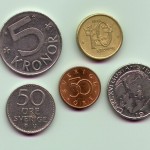WTI and Brent futures were little changed during midday trade in Europe today, heading for minor weekly changes as supply-demand outlooks unsettled the market. Meanwhile, natural gas erased earlier gains and looks to settle the week where it started.
WTI futures for October delivery on the New York Mercantile Exchange traded at $92.71 per barrel at 12:03 GMT today, down 0.39% for the day, while prices had ranged from $92.34 to $93.17 per barrel. The US benchmark is headed for a ~0.5% weekly gain, despite losing 1.4% on Thursday.
Meanwhile on the ICE in London, November Brent stood at $97.62 per barrel, down 0.08%, daily prices between $97.18 and $97.89 per barrel. The contract’s premium to November WTI widened to $6.03. The European brand dropped 1.3% yesterday, reversing gains from earlier this week.
“We are at the bottom now and we expect prices to remain stable around this level the coming year,” Jens Naervig Pedersen, an economist at Danske Bank A/S in Copenhagen, said for Bloomberg. “Prices have gained some support from the comments from OPEC earlier this week hinting that it may lower its production target for next year.”
Libya, OPEC’s smallest exporter, said its crude output declined amid fighting between rival militants, which left a key oilfield inoperable.
The news came as Saudi Arabia, OPEC’s top producer and exporter with daily shipments of ~7m barrels, confirmed a calm stance in the backdrop of lower-than-desired crude prices.
“Daily, weekly and even monthly [price] gyrations have little meaning and constitute a source of noise around a solid trend,” Prince Abdulaziz Bin Salman Bin Abdulaziz, Saudi Arabia’s deputy oil minister, said for the Saudi Press Agency. “Oil demand is expected to continue on its upward trend.”
There was a bit of speculation that Saudi Arabia will cut output to keep prices in line with a $100 per barrel price, set as the benchmark for OPEC. Speculation was further fueled after the country said its production in August, before prices slumped the most, was 0.4m b/d lower. OPEC also lowered the projection of marketable oil by the cartel to 29.5m per day last week, down from the 30.0m/d set in June.
OPEC’s secretary general lent further support to oil bulls, saying the cartel will probably trim production plans to come in line with market demand.
US demand
The US Energy Information Administration (EIA) reported its weekly oil readings on Wednesday, revealing a significant increase in crude imports led to only the third positive net build in 16 weeks. Crude stocks had added 3.7 million barrels in the week through September 12th, with a 7% weekly increase of imports, while gasoline inventories were down 1.6m and distillates up 0.3m.
On a broader scale, the US economy logged mixed data this week. Jobless claims were at a six-year low, while CPI readings disappointed and fell off the Fed target figures, just as the Federal Open Market Committee (FOMC) was deciding on monetary policy.
The monetary-policy body of the Fed decided to, as expected, cut monthly assets purchases by another $10bn and keep the benchmark interest rate at 0.25%. The Fed’s projection for next year was changed, however, with still a “considerable time” between the QE program closing and rates rising. The end-year rate target, however, was raised to 1.375% from the previous of 1.125%, offering dollar bulls significant support.
The US Dollar Index, which measures the strength of the greenback, reached a 4-year peak this week, weighing on all dollar-denominated commodities, such as oil.
Natural gas
Front-month natural gas futures for settlement in October on the New York Mercantile Exchange traded at $3.893 per million British thermal units (mBtu) at 9:08 GMT, down 1.07% for the day. Prices ranged from $3.891 to $3.922 per mBtu. The contract is headed for a minor weekly gain, despite losing 2.57% yesterday.
Despite a series of bearish weekly reports in the US, and weather patterns suggesting comfortable overall temps, traders bought into some early winter heating hype, bumping up the front-month contract to a two-week high on Wednesday. A pipeline incident also offered some support, though worries have now subsided, while the cool has now also fizzled, and with further pressure from the US weekly build, markets corrected the price increase to near start-of-the-week levels.
“Until weather patterns turn convincingly colder, we see little reason to buy into early winter season hype, especially with two months still to go in the build season,” analysts at NatGasWeather.com wrote in a note to clients today. “Expect deficits to continue making up ground in steady chunks for the next three next weeks, and potentially a while longer.”
The US Energy Information Administration (EIA) reported the build at natural gas inventories for the week ended September 12th to be quite larger than expected at 90 billion cubic feet (Bcf), which was also the the lower end of analysts’ forecasts. The figure also represents the 22nd straight week of above-average injections and narrowed the deficit to the same-week 5-year average to just 13.3% at 2.891 trillion cubic feet of natural gas in storage. The series also logs the highest 20-week build in more than 20 years.
“Temperatures in the 70s and 80s will rule. The US [with the brief exception of the Northeast] should require limited heating or cooling demand in this warm early fall pattern,” NatGasWeather.com wrote.
US weather outlook
Weather patterns project waning cold over the Midwest and Northeast this weekend, as high pressure over the South breaks north to deplete any cool remnants of the latest Canadian system. Monday is already looking at another system tracking from Canada, though it will not impact temperatures by too much.
“If the markets are looking for a reason to say weather is less bearish any time in the next two weeks, it would probably be from this weather system even though it’s really not that
cold,” NatGasWeather.com analysts wrote. “Temperatures will warm into the 70s and lower 80s for much of the Midwest within a day or two after it departs, leading to low national nat gas demand.”
Southern California is relieved by cooler onshore drifts, after nearing record temps a few days back, while Texas remains pinned by the remains of tropical system Odile and more storms and heavy rains. US-wide cooling demand will be moderate-to-low.





